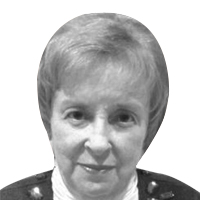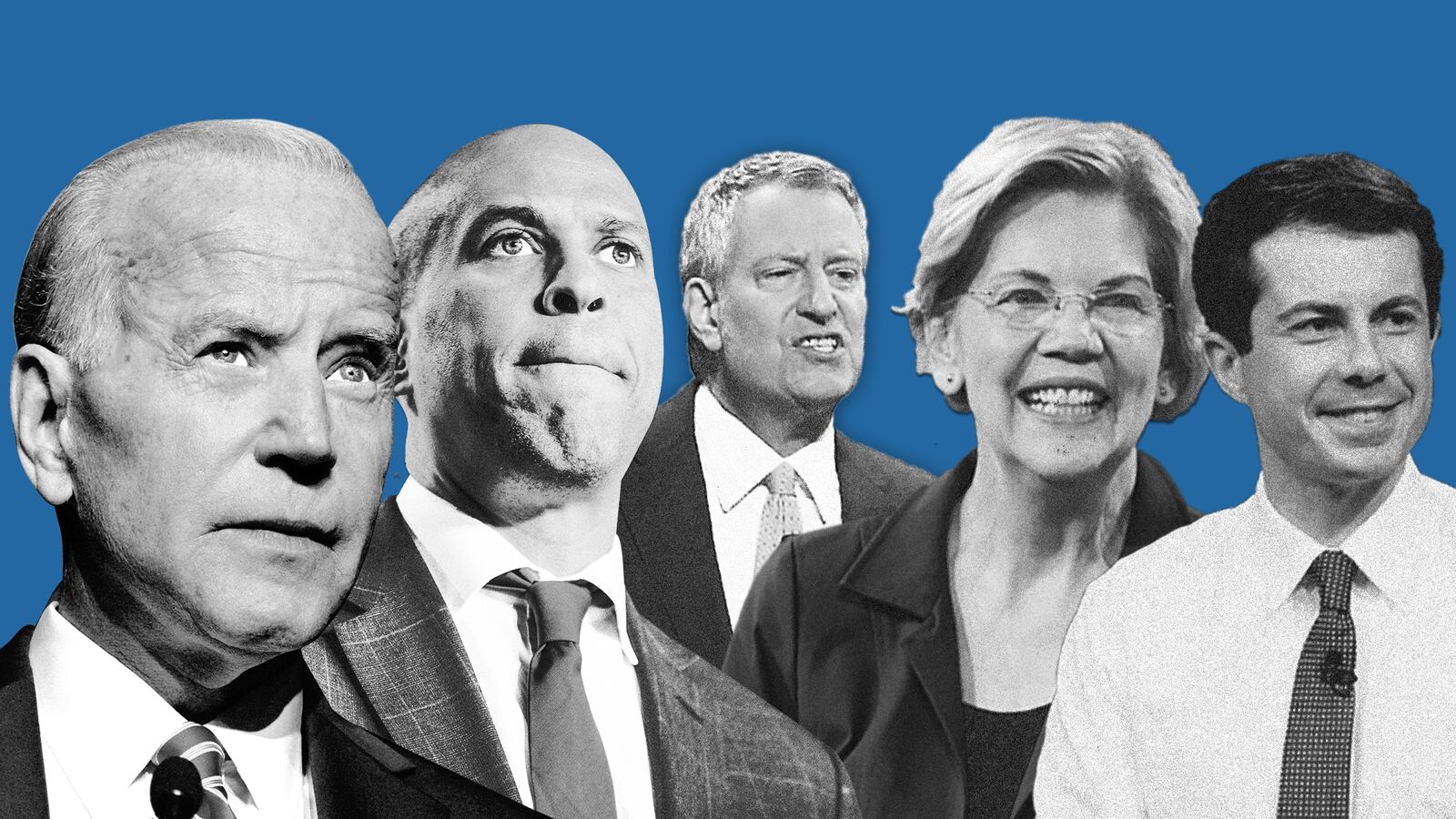Now that the Democratic Party has announced its roster for the first of two debates with 10 participants each on succeeding nights at the end of June, the difficulties and dangers of this process are coming into focus—and it is clear that the inherently dubious nature of these events has been exacerbated by the party’s new rules. A real debate would provide a substantive back and forth between candidates on major issues; but despite the considerable build-up, that’s not what these nationally televised sessions deliver.
The inherent problem with what the presidential debates have become is that they essentially reward the wrong qualities, ones that are essentially irrelevant to governing effectively. With such an unprecedented number of competitors onstage, the pressure on the candidates will be greater than ever to come up with one-liners aimed at getting maximum attention. These zingers—likely rehearsed with advisers for hours—can appear to display a candidate’s cleverness or sense of humor, but they give us no sense of how a person will wear over time, and sometimes mask who people actually are (though I must admit that candidate Donald Trump’s resorts to vulgarity in the debates were a sign of what was to come).
The one-liners can possibly convey thoughtfulness that may or may not be the real deal. They tell us little about a candidate’s grasp of the issues (this used to be assumed but recent experience suggests we need to check that out); talent to lead; or about their ability to persuade the public and members of Congress and to form coalitions, or to bring in able, honest people for top jobs who will offer principled loyalty (rather than the cringe-worthy type).
After the first two debates—for which the party required a candidate raise money from at least 65,000 contributors, to show grass-roots support, or register at least 1 percent in three approved national polls, with those who accomplished both having the advantage in making the cut of 20 out of the 24 self-designated competitors for the nomination—the requirements for the debate in September (at which point, the party plans monthly debates running at least through April) become considerably tougher. They brutally double the earlier requirements, which will likely result in a considerably shrunken field.
The rules don’t just weed out kooks. The requirements tilt, in some cases perhaps fatally, against people who entered the contest later than the others. For example, Montana governor Steve Bullock, a Democrat who in 2016 won reelection by four points while Donald Trump carried the conservative state by 20 points, believed, understandably, that he had to wait to enter the nomination contest until his legislative session was over, which didn’t allow him time to meet either of the criteria. Colorado Senator Michael Bennet, a widely admired and thoughtful figure, had to recover from surgery for prostate cancer before he could fully participate in the contest, and he just scraped by in getting on the list, having met the polling criterion but not the requirement of donations from 65,000 people. If Bullock succeeds in meeting the polling criterion by the next set of debates, on July 30 and 31, he could replace the last candidate to have made the cut, California Rep. Eric Swalwell.
But what’s the rush? The Iowa caucuses are on February 3; that’s roughly a million years away in political time. The public—as opposed to the political press or others who are also obsessed with politics—is just beginning to focus on the candidates. And at least one as-yet unrecognized but potentially strong candidate has been winnowed before having a chance to show his stuff. The desire to keep oddballs off the stage is natural, but as the new system is working out so far, some let-us-say unusual and unlikely candidates have made the first cut. You see, under these rules a potential candidate may have to show his or her viability before they have a chance to show their viability. Under these polling criteria, Jimmy Carter probably wouldn’t have qualified for the first debate 1976, and even Bill Clinton would have had a close call.
Understandable as is the DNC’s desire to reduce the number of candidates, why not let the voters do that? As candidates falter, their money dries up, or some simply may not be able to raise enough to keep their candidacy going until the Iowa caucuses. The kooks usually don’t last very long, although that may not be the precise word to apply to Trump—he was an outlier when he entered the race—but then he keeps defying laws of gravity as well as political norms. So far.
The new rules and the resultant early decapitations also appear to make it far more difficult than before for a potential break-out candidate to enter the race in the months leading up to the first primary contests—if that person wants to get the exposure that comes from being in the debates. (Trump had to rent a crowd when he announced his presidency.) The new rules make it almost prohibitive for someone as potentially formidable as Georgia’s Stacey Abrams to start running in September (if she so desires)—five months before the Iowa caucuses and 14 months before the general election. It’s very hard to see a Robert Kennedy entering the race after the New Hampshire primary, as occurred in 1968.
I’m in the minority in thinking that a long contest is a positive thing. (Those who moan about the length of the contest as if it’s a personal affront can simply watch something else or read a book.) The longer contest gives the voters a better chance at getting to know the candidates; cuts down on the advantages of already being well known; and offers us more of an opportunity to see how they wear over time. Now there’s a question of how many will be paying attention when, under the new system, fateful choices will be made.
Actually, the debates may be the wrong vehicle for presenting candidates for voters to judge. The town halls that various cable outlets have been putting on, with the longer exposure to the candidates, offer a better way to ascertain important things about them. But will the cable channels offer opportunities for the lesser-knowns? I think that this can be worked out. For example, they could let candidates who are apparently sane and actively campaigning but yet to register widespread support participate together as a small group, where someone outstanding can still break through.
I realize that much of the public would rather watch in effect a boxing match than a solo presentation but isn’t boxing on the wane?
There’s no perfect system for qualifying candidates for the nomination, and each choice will have unanticipated results. The problem with the system that Democratic party leaders recently devised is that some quite untoward results can be anticipated now. If anything, they’re essentially weighting the nomination system toward the most famous candidates from the outset—as if they’ve learned little from 2016. (There’s an exception to almost any political generality, and the one here is Pete Buttigieg.)
But establishment Democrats (that is, the majority of elected politicians and party officials) who have been so fearful of doing anything that might aid Donald Trump’s reelection effort (even though their assumptions about the political effects of certain actions might be questionable) that they’ve been seeking to avoid honoring their constitutional duty to move on to outright considering his impeachment, may well end up helping him by adopting this new way of picking his opponent.
Elizabeth Drew, a Washington reporter and author, was a panelist in the 1976 debate between Ford and Carter and moderator of a Democratic primary debate in 1984. Her most recent book is a reissue and expansion of Washington Journal: Reporting Watergate and Richard Nixon’s Downfall.






